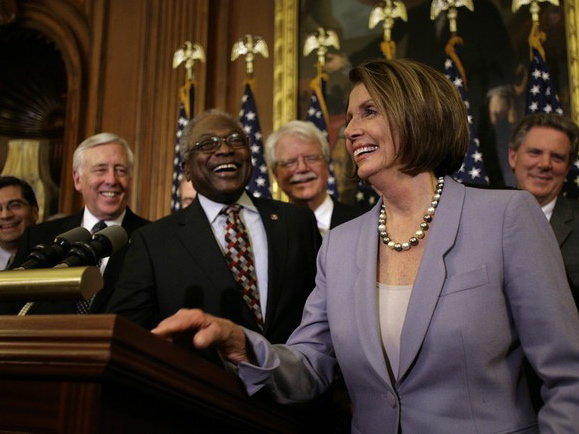Lost in the heated political rhetoric surrounding the debate over American health care reforms are some simply human dramas that can be framed in Constitutional and Judeo-Christian contexts.
For instance, ponder the following scenario: 10 Milwaukee children are lined up side-by-side. Each of them has a fever and a terrible, painful ear infection. Six of them will go to see a doctor today, because their guardians have health insurance. Those six children will receive antibiotics and pain relief and will sleep comfortably tonight, well on their way to recovery.
Four of them will not. Their families have no insurance and cannot afford another visit to the clinic, much less the medicines that will be needed for treatment. They will go to bed in pain tonight. Their infections will grow worse -- so bad that ultimately they will be taken to the hospital emergency room somewhere down the line.
Once at the hospital, they will be treated and released. With no insurance, their families will not be able to pay the E.R. bills. Those costs will be written off by the hospitals as bad debts to the indigent. The hospitals must recoup those costs somewhere. The costs will be passed along to the bills of other patients who have health insurance. Those other patients, and very often their employers, will end up paying higher insurance premiums and deductibles.
And round and round it goes.
In the American pursuit of life, liberty and happiness, is anything more important than health care? Is basic health care not a right, rather than a privilege? If health care is not a right, who should be empowered to decide who receives it and who doesn't? You? Me? A government agency? An insurance company? And what should that decision be based upon? Wealth?
The American health care system is a hodgepodge of capitalism and socialism. It is redundant. It is bloated. Compared with the health care systems in all other civilized nations, it is inefficient and expensive.
And those excessive costs are borne by our consumers and our businesses. Those costs are built-in overhead burdens that make America companies less competitive in the global marketplace.
President Barack Obama is urging Congress to reform America's health care system.
Few would argue about the fractured inefficiencies of the American system. Of course, the arguments arise in the debate over how health care is provided, or more succinctly, how it is paid for and who pays for what.
Many American business executives have long decried double-digit annual employee health care cost increases. Still, they have been reticent to support reforms and are understandably cynical about more government involvement in health care, even though they know intuitively that the current system is failing.
The stakes are high. Aside from the very human costs, the health care industry accounts for about one-sixth of the American economy.
The editorial staff at BizTimes Milwaukee is not taking a stance in the contentious fight over health care reform. We choose instead to be a messenger, a shepherd of ideas. In doing so, we enlisted the help of a wide field of professionals in a variety of occupations and organizations in southeastern Wisconsin to provide their best ideas for health care reform. We asked them to complete this simple sentence: "If I were in charge of health care reform, the first thing I would do is ..."
Our intent is to add food for thought to the most important public policy debate this nation has had since the Civil Rights movement of the 1960s. The following essays from some of the region's most thoughtful people were collected by BizTimes Milwaukee reporter Alysha Schertz.
Click here to read the discussion.
Online bonus: Politicos weigh in
This week's BizTimes Milwaukee special report about health care reforms includes special Milwaukee Biz Blogs contributed by U.S. Reps. Gwen Moore (D-Milwaukee) and Paul Ryan (R-Janesville). Their essays are posted here and here.
May the discussion and the debate serve this country well.
Steve Jagler is executive editor of BizTimes in Milwaukee and is past president of the Milwaukee Press Club. BizTimes provides news and operational insight for the owners and managers of privately held companies throughout southeastern Wisconsin.
Steve has won several journalism awards as a reporter, a columnist and an editor. He is a graduate of the University of Wisconsin-Milwaukee.
When he is not pursuing the news, Steve enjoys spending time with his wife, Kristi, and their two sons, Justin and James. Steve can be reached at steve.jagler@biztimes.com.







